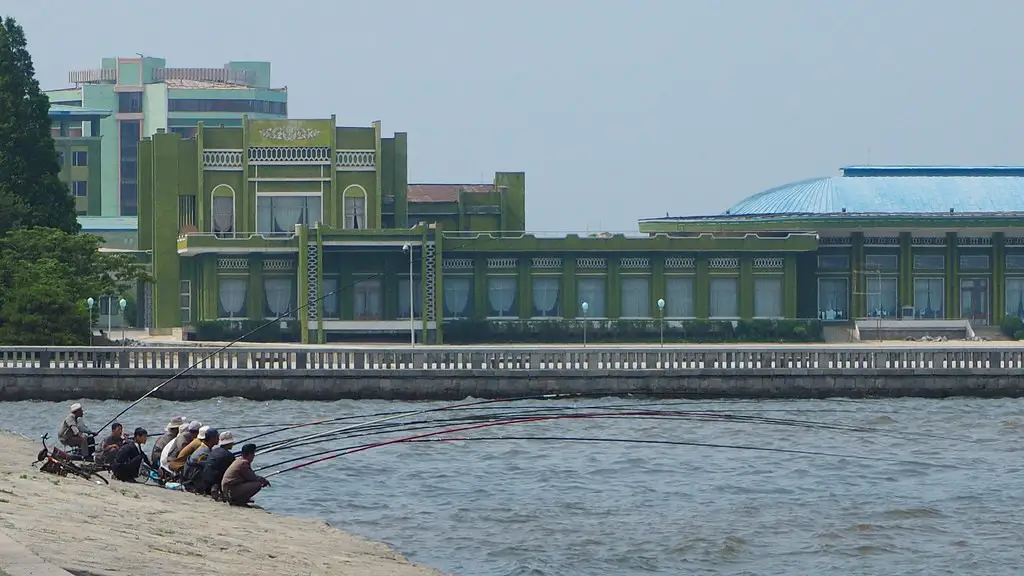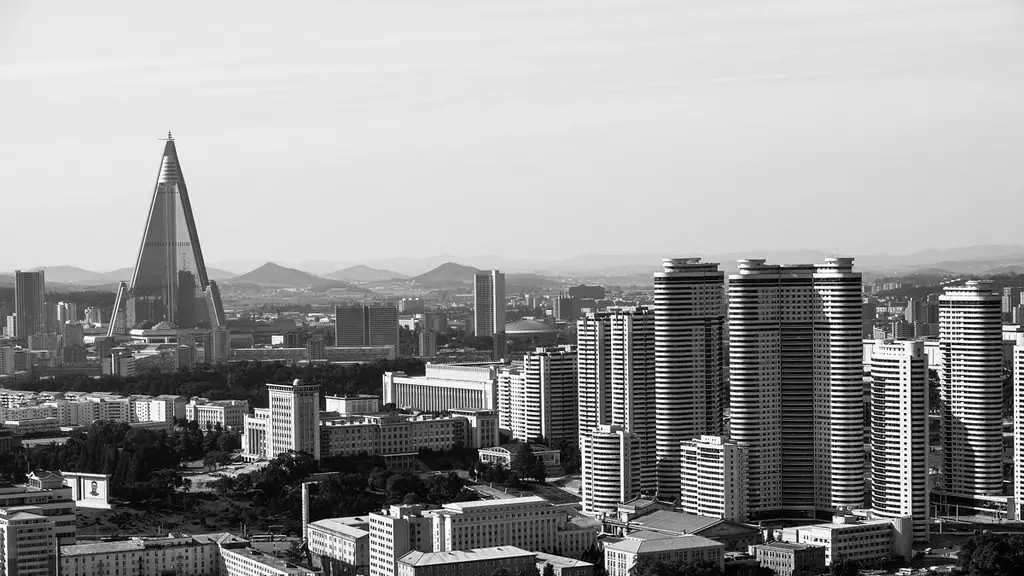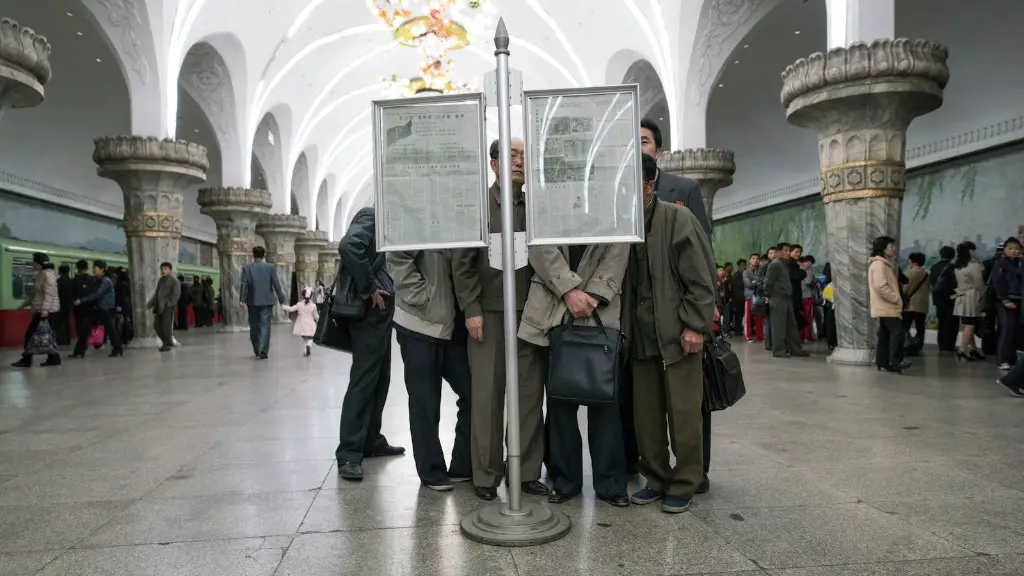History of North Korea
The Democratic People’s Republic of Korea, commonly known as North Korea, was founded on September 9, 1948. It is a single-party socialist state, and its governing party is the Workers’ Party of Korea. The Democratic People’s Republic of Korea is an abnormal creation within the Korean peninsula, as the Korean peninsula has a history of foreign powers, including Japan and China. It is currently ruled by the Korean dynastic leader Kim Jong Un, who succeeded his father, Kim Jong Il, in 2011, who in turn had served as a military official under his father, Kim Il-sung, since the 1950s.
The Founding of North Korea
Kim Il-sung was the original leader of North Korea, and he gained power and influence during his leadership of the armed struggle against Japanese occupation, leading the effort from 1926 to 1945. He gradually gained influence over northern Korea with the help of the Soviet Union, then establishing the DPRK in 1948. Il-sung created a powerful and highly centralized government organized under the principles of Marxism-Leninism and Juche ideology. He made efforts to ensure the sovereignty of North Korea from postwar Japanese influence and from encroachment by the U.S. Empire.
Kim Il-sung’s Rule and Influence
Il-sung was the sole leader of the North Korean government from 1948 to 1994 and the founder of the Juche ideology, which was later expanded by his son, Kim Jong-il. Juche, a form of self-reliance, allowed North Korea to remain independent of superpower influences and ideologies. Furthermore, the DPRK developed its own military system and foreign policy, ensuring that North Korea was not controlled by the United States or any other major superpower.
Kim Il-sung also made efforts to advance North Korea’s industries, supported the expansion of the national education system, and established the Pyongyang Economic College to educate managers and technicians in the economic tasks of the government. His policies towards the South were aggressive, particularly during the Korean War, and he modernized the North Korean military.
Kim Jong-il’s Rule, Policies and Legacy
Kim Jong-il, who was the son of Kim Il-sung, took over leadership of North Korea following his father’s death in 1994. Under his rule, the country’s economy stagnated and frequent famines occurred, resulting in thousands of deaths. Kim Jong-il also established strict limitations on the media, cutting off any access to outside media, which further isolated the people of the North Korean regime.
The nuclear program of North Korea largely began under Kim Jong-il, leading the country to develop an arsenal of nuclear weapons, as well as missiles capable of carrying nuclear warheads. By the time he died in 2011, North Korea had conducted several successful nuclear tests, and it had successfully tested numerous ballistic missiles as well.
Kim Jong-il also built upon his father’s Juche ideology, creating a dynamic and intricate cult of personality. He was often portrayed as a deity and was highly regarded by the public, and his public appearances often featured lavish events, including monuments and bronze statues of the Supreme Leader.
Kim Jong Un and Modern North Korea
Kim Jong Un currently wields absolute power over North Korea, governing the country after the death of his father in 2011. He has continued his father’s policy of strict isolation and economic deprivation, and he developed an aggressive military posture in an attempt to strengthen the country’s power on the international stage. His personal presence is celebrated in a similar fashion to his father and grandfather, including the manufacture of plastic figurines of the Dear Leader.
The military of North Korea received a significant increase in funding during Kim Jong-un’s rule. His policies included a massive military buildup and the development of nuclear-capable intercontinental ballistic missiles. North Korea successfully launched such missiles in 2017, as well as a series of “cyber” attacks against the South Korean government in 2016.
Kim Jong Un has also sought to maintain good relations with neighbouring countries, beginning the process of normalization between North and South Korea, as well as with China and other countries. His reign has seen increased access to the internet, with more citizens obtaining access to mobile internet devices and greater access to international websites.
Economic Reform in North Korea
Kim Jong-un has been pushing for economic reforms in North Korea but progress has been slow so far. These reforms are mainly focused on loosening the strict controls on state-owned enterprises, allowing private businesses to operate in the North Korean market, and providing more economic freedoms to citizens. These reforms have also included giving more economic power to local governments as well as strengthening foreign trade.
The North Korean economy is highly reliant on aid from China, as well as the sale of weapons and minerals. Kim Jong-un has been trying to diversify the economy, with the construction of special economic zones to attract foreign investment and the creation of a free-trade zone with the South Korea which is the source of the majority of their foreign trade.
Human Rights Abuses and International Sanctions
North Korea has a long history of human rights abuses, and many citizens live in poverty. Furthermore, North Korea has also been subject to numerous international sanctions due to Kim Jong-un’s nuclear weapons program and his human rights violations. These sanctions have increased pressure on North Korea’s economy, but they have also had a ripple effect throughout the region due to their effects on the North Korean economy and its ability to compete in global markets.
International pressure groups have been pushing for the North Korean government to reform its human rights record and to cease its nuclear weapons program. However, these efforts have made little headway so far, as the North Korean government and Kim Jong-un remain adamant in their stance of self-reliance and isolation.
Conclusion
Kim Il-sung created the foundation for modern North Korea, and his son, Kim Jong-il, taken further steps to isolate the country. Kim Jong-un continued their legacy, pushing to modernize the military and developing the nuclear program of North Korea. He also has pushed for economic reforms, but has faced opposition from the international community for his human rights abuses and nuclear weapons program. North Korea remains a very isolated and closed-off country, but Kim Jong-un’s efforts have been effective in creating diplomatic progress and providing more economic opportunities to North Koreans.



